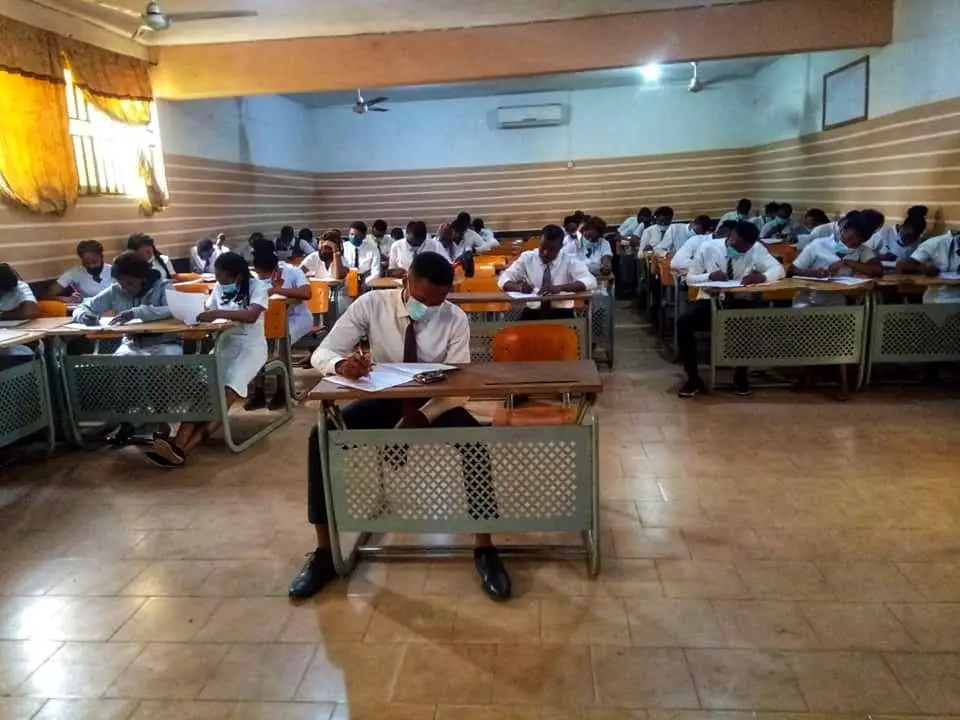Gastrointestinal and Renal Physiology (PYS 202) is a second-semester course in the College of Medicine, UNEC.
The test is in an essay question format. Typically, you will be asked two questions for the test. One question each for the two sections of the course.
Below are likely questions in GIT and Renal test in UNEC for second year students.
Gastrointestinal Physiology
- Gastrointestinal Tract (GIT)
- Outline the stages of deglutition
- A brief definition of deglutition
- Oral stage
- Pharyngeal stage Oesophageal stage
2. Describe the stages of gastric motility
- Define gastric motility
- Receptive relaxation
- Slow mixing and digestion Gastric emptying
3. Write an essay on defaecation
- Define defaecation
- Role of the rectum in defaecation
- Internal anal sphincter of the rectum
- External anal sphincter of the rectum
4. Write short note on vomiting
- Define vomiting
- Causes of vomiting
- The action of vomiting
5. Write short note on the functions and regulation of salivary secretion
- List the functions of the saliva
- State the nervous mechanism of salivary secretion
- Effect of the rough and smooth object in the mouth on salivary secretion The centre in the brain in charge of salivation – salivatory nucleus in between the medulla and the pons
6. Write an essay on the mechanism of Hcl secretion
- Draw the sketch
- Describe HCl production in the stomach
7. Describe the secretion of bicarbonate
- Draw a well-labelled sketch
- Describe the secretion of bicarbonate
8. Write short note on ductile modification
- Draw sketch for ductile modification
- State saliva is an ultrafiltrate of plasma
- Absorption of sodium
- Secretion of potassium
- Absorption of chlorine
- Secretion of bicarbonate
9. Discuss the role of bile in digestion and absorption
- Emulsification of fats
- Absorption of fats
- Laxative action
- Excretory function
10. Discuss the digestion and absorption of carbohydrates
- Digestion of carbohydrate in the mouth
- The role of salivary amylase
- Digestion in the stomach
- Digestion of carbohydrate in the small intestine by brush border enzymes
- Absorption of carbohydrate
- Transporters for absorption of fructose, glucose and galactose
11. Write short concisely on gastric emptying
- Define gastric emptying
- Peristaltic waves
- Systolic contractions of the antrum
- Reduction in size of the stomach Nervous stimulation of gastric emptying – Ghrelin
12. List the stages of gastric Hcl secretion
- Cephalic phase
- Gastric phase
- Intestinal phase
Renal Physiology
- Renal Physiology
- Discuss the body’s various fluid compartments
- Describe briefly how the various fluid compartments may be measured
- Discuss the composition of the body fluid compartment
2. Write short note on edema formation
- Define oedema
- Causes of oedema
3. Outline the general functions of the kidney
- Maintenance of homeostasis
- Excretion
- Regulation of acid-base balance
- Hormonogenesis (endocrine function)
- Regulation of arterial blood pressure
- Gluconeogenesis
4. Describe the functional anatomy of the kidney
- Position of the kidney
- Weight of the kidney
- Medial border of the kidney
- Outer region – cortex
- Inner region – medulla
- Renal blood supply
5. Briefly discuss the functional unit of the kidney
- State the function of the nephron
- Bowman’s capsule
- Glomerulus
- Proximal tubule
- Loop of Henle
- Distal tubule
- Medullary collecting duct
- Types of nephrons (cortical and juxtamedullary nephrons)
6. Write short note on glomerulus
- Position of the glomerulus
- Functions of the glomerulus
- Capillaries of the glomerulus
- Glomerular membrane
7. Discuss the autoregulation of renal blood flow and glomerular filtration rate (GFR) by the kidneys
- Nature of the glomerular membrane
- Size of the capillary bed
- Filtration pressure
- Constriction of afferent arterioles
- Constriction of efferent arteriole
- Renal blood flow
8. Define glomerular filtration rate (GFR). What mechanisms does the kidneys use to regulate it within a narrow range and describe where it takes place in the kidney
9. Define glomerular filtration rate (GFR). How can it be measured in man? What factors affect it? How is it related to plasma clearance?
10. Write short note on the reabsorption of glucose by the nephron
11. Discuss the counter current mechanisms in the kidneys
12. Describe the mechanisms by which the kidneys get rid of water after excessive drinking and conserve it during water deprivation
13. Write an essay on body buffer systems
14. Describe the process by which the body maintains acid-base balance
15. Discuss the role of the kidney in the acid-base balance
16. Write short note on acidification of urine or production of acidic urine
17. Writer short note on tubular buffers
18. Discuss micturition
